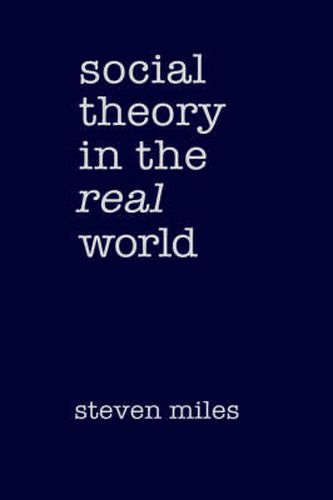Readings Newsletter
Become a Readings Member to make your shopping experience even easier.
Sign in or sign up for free!
You’re not far away from qualifying for FREE standard shipping within Australia
You’ve qualified for FREE standard shipping within Australia
The cart is loading…






Social Theory in the Real World is concerned with illustrating the practical benefits of social theory. Many students find it hard to relate the real insights provided by social theory to their real life experiences, and many lecturers struggle to demonstrate the relevance of social theory to everyday life. This book offers an accessible, non-patronizing solution to the problem, demonstrating that social theory need not be remote and obscure, but if used in imaginative ways, it can be indispensable in challenging our common sense perceptions and understandings. The book identifies the key themes of contemporary social theory: mass society, postindustrialism, consumerism, postmodernism, McDonaldization, risk and globalization, and uses the insights of both classical and contemporary theorists of social change to highlight the potential of imaginative theorizing.
$9.00 standard shipping within Australia
FREE standard shipping within Australia for orders over $100.00
Express & International shipping calculated at checkout
Social Theory in the Real World is concerned with illustrating the practical benefits of social theory. Many students find it hard to relate the real insights provided by social theory to their real life experiences, and many lecturers struggle to demonstrate the relevance of social theory to everyday life. This book offers an accessible, non-patronizing solution to the problem, demonstrating that social theory need not be remote and obscure, but if used in imaginative ways, it can be indispensable in challenging our common sense perceptions and understandings. The book identifies the key themes of contemporary social theory: mass society, postindustrialism, consumerism, postmodernism, McDonaldization, risk and globalization, and uses the insights of both classical and contemporary theorists of social change to highlight the potential of imaginative theorizing.